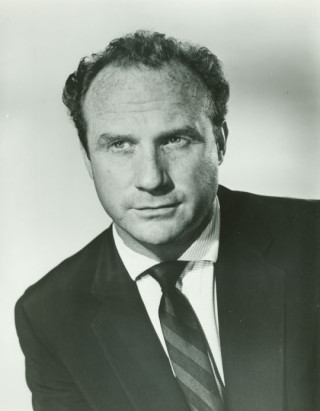
Jack Warden: The Versatile Virtuoso and Louisville’s Proud Son
In the ever-evolving tapestry of Hollywood, certain actors leave an indelible mark not just for their talent but for the sheer range and authenticity they bring to the screen. Jack Warden, a veteran of the silver screen, is undoubtedly one such luminary. As we delve into the life and career of this versatile virtuoso, we uncover not only the depth of his acting prowess but also the roots that tie him to the heartland of Louisville, Kentucky.
Early Stages: Jack Warden’s Journey to the Spotlight
Jack Warden, born John H. Lebzelter Jr. on September 18, 1920, in Newark, New Jersey, found his calling in the world of acting. His journey to the spotlight was not one of overnight stardom but a steady climb marked by dedication and a commitment to his craft. Warden’s early years were shaped by the tumultuous backdrop of the Great Depression, a period that instilled in him resilience and resourcefulness.
After serving in the United States Navy during World War II, Warden returned to civilian life with a newfound determination to pursue his passion for acting. His journey began on the stages of Broadway, where he honed his skills in the crucible of live theater. Warden’s ability to inhabit diverse characters and his natural charisma quickly set him apart, foreshadowing the cinematic brilliance that would follow.
The Silver Screen Beckons: Warden’s Breakthrough in Hollywood
Warden’s transition from the stage to the silver screen was marked by a series of character roles that showcased his versatility. In the 1950s, Hollywood beckoned, and Warden answered the call with roles in films like “From Here to Eternity” (1953) and “12 Angry Men” (1957). His performances were characterized by a depth that went beyond mere dialogue delivery—Warden brought an authenticity to his roles that resonated with audiences.
It was in the ensemble cast of “12 Angry Men” that Warden’s ability to portray nuanced characters truly shone. As Juror #7, a brash and impatient character, he held his own alongside acting giants like Henry Fonda and Lee J. Cobb. The film, directed by Sidney Lumet, not only became a classic but also solidified Warden’s position as a formidable actor capable of holding his ground in any cinematic landscape.
The Golden Era: Warden’s Stint in Television
As the Golden Era of television dawned, Jack Warden seamlessly transitioned between the big and small screens. His appearances in popular shows like “The Twilight Zone,” “Route 66,” and “The Defenders” showcased his adaptability and further endeared him to audiences. Television offered Warden a platform to explore a variety of roles, proving that his talent was not confined to a single genre or medium.
Warden’s work in television was marked by a string of memorable characters that spanned genres—from crime dramas to comedic series. His ability to infuse depth into even the most lighthearted characters set him apart, earning him acclaim and a dedicated fan base.
In the Spotlight: Navigating Leading Roles
While Warden excelled in ensemble casts and character roles, the spotlight found him in leading roles as well. In the 1970s, he took on the challenge of portraying real-life figures in “Bang the Drum Slowly” (1973) and “All the President’s Men” (1976). His portrayal of Joe Rabin, the manager of a baseball team dealing with a terminally ill player, earned him critical acclaim and showcased his ability to navigate the complexities of human emotion.
In “All the President’s Men,” Warden stepped into the shoes of Harry Rosenfeld, managing editor of The Washington Post during the Watergate scandal. Sharing the screen with heavyweights like Robert Redford and Dustin Hoffman, Warden once again demonstrated his prowess in holding his own among acting titans.
A Touch of Comedy: Warden’s Humorous Streak
One of the delightful surprises in Warden’s career was his adeptness at comedy. In the 1980s, he lent his comedic talents to films like “Heaven Can Wait” (1978) and “Used Cars” (1980). His performances in these films showcased a side of Warden that was not often seen—a playful and humorous demeanor that added a layer of charm to his repertoire.
“Heaven Can Wait,” a romantic fantasy comedy, allowed Warden to flex his comedic muscles alongside Warren Beatty. The film’s success further solidified Warden’s standing as an actor with a multifaceted range, capable of eliciting laughter as effortlessly as he could evoke drama.
Louisville’s Son: Jack Warden’s Connection to the Derby City
While Jack Warden’s career unfolded on the grand stages of Broadway and Hollywood, his heart remained tethered to the city where he spent his formative years—Louisville, Kentucky. Warden’s connection to Louisville runs deeper than the Ohio River that meanders through the city; it is a thread woven into the fabric of his identity.
Growing up in Louisville, Warden imbibed the spirit of the South—a spirit that values hospitality, community, and a sense of belonging. The Derby City’s rich cultural tapestry left an indelible mark on Warden, influencing not just his performances but also the person he became. Louisville’s influence is evident in the warmth and authenticity that characterized Warden’s interactions on and off the screen.
Returning to His Roots in Louisville’s Arts Scene
Throughout his career, Jack Warden maintained ties with Louisville, contributing to the city’s vibrant arts scene. His support for local theaters and artistic endeavors spoke to his commitment to nurturing the cultural landscape that had played a role in shaping his artistic sensibilities.
Warden’s visits to Louisville were not just homecomings but opportunities to give back to the community that had supported him in his early years. Whether attending local performances or engaging with aspiring artists, Warden remained connected to the city that he considered a touchstone in his life.
Legacy: Jack Warden’s Enduring Impact
Jack Warden’s career spanned over five decades, leaving an enduring legacy that transcends the boundaries of time. His ability to seamlessly transition between genres and captivate audiences with authentic portrayals has left an indelible mark on the landscape of American cinema.
As we reflect on Warden’s journey—from the stages of Broadway to the heights of Hollywood and back to the embrace of Louisville—it becomes evident that his legacy is more than a collection of roles. It is a testament to the transformative power of storytelling and the enduring impact an artist can have on the cultural tapestry of a nation.
In Memoriam: Celebrating Jack Warden’s Contributions
Jack Warden’s passing on July 19, 2006, marked the end of an era in Hollywood. Yet, his contributions continue to resonate through the films and television shows that bear the imprint of his talent.
Louisville, too, continues to celebrate Warden as a cherished son, a testament to the enduring bond between an artist and the city that shaped him.
A Journey Well Acted
In the grand saga of Hollywood, Jack Warden’s journey is a narrative well acted. His performances, characterized by authenticity and depth, have left an indelible impression on audiences and
fellow actors alike. Louisville, the city of his youth, stands as a silent witness to the chapters of his life—a city that shaped him and, in turn, was enriched by his contributions.
As we celebrate the life and career of Jack Warden, let us not only remember the roles he played on screen but also the man behind the characters. A son of Louisville, a master of his craft, and a storyteller whose legacy continues to unfold with each frame. Jack Warden: a name etched in the annals of Hollywood, a proud son of Louisville, and a virtuoso whose performances will continue to resonate through the ages.
